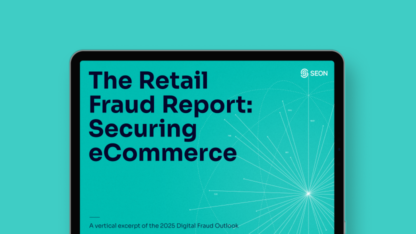Know Your Customer mandates are set in place to help prevent money laundering that ends up financing terrorism, organized crime, and other potentially illicit activities. By verifying the true identity of online users, companies should be able to preclude such malicious business from occurring in their domains. There are certain verticals that have to adhere to these mandates or risk incurring massive fines and the accompanying reputational damage they bring.
Thus, companies that fall within the mandated perimeter — namely money services, banks, gambling operators, cryptocurrencies, and real — should be doing their due diligence both to their applicable legal jurisdictions, as well as to their customers. Striking the correct balance between profitability and KYC compliance poses an ongoing challenge for these sectors.
KYC automation is one method that drastically cuts down on both friction and on the time and resources needed to comply with protocols. SEON explores.
What is KYC Automation?
KYC automation is when software is used to efficiently handle the information gathering and document review aspects of the Know Your Customer process, reducing the need for manual oversight. For companies that fall within the perimeter of industries that need to conduct KYC, some degree of automation will be an essential part of an efficient and low-friction user onboarding process.
The protocols for compliant KYC practices generally do not stray from:
- ascertain the identity of your customer and verify with official IDs
- assess the risk of the verified identity
- maintain accurate and up-to-date user profiles
There are many solutions to automating the above process, including some that automate the collection of ID support documents, including ID cards, passports, as well as documents associated with more hardened KYC processes, such as proof of income documents and bills.
Notably, the Anti-Money Laundering process is closely related to the KYC (know your customer) onboarding, but AML is more concerned with what the KYC-verified persons do with their transactions, to further prevent the likelihood of money laundering.
Manual vs Automated KYC
When a manual KYC systems’ ability to perform Know Your Customer checks is compared to that of an automated KYC system, it is clear that manual KYC is restricted by some human limitations around accuracy, productivity, workload management – and, in some cases, even around ethics.
Let’s take a quick glance at some of the fundamental differences between manual KYC and automated KYC:
| Manual KYC | Automated KYC |
| time-consuming | time-saving |
| intuitive | systematic |
| a conscious process | an algorithmic process |
| paid for by hiring staff | paid for by deploying software |
| improves mainly by having the right workforce and timescale | improves mainly by being scalable and regularly updated |
Let’s now consider a core part of automated KYC: automated document processing.
This is central to both manual and automated KYC, but when such processing is used in the context of automated KYC, it is more accurate to call it automated document processing.
SEON helps its customers by offering them the tools that can enhance their KYC checks. Read SEON’s take on the best KYC software tools.
Read more
In the context of automated KYC, automated document processing uses automatic systems such as OCR (optical character recognition) scanning – and, in more advanced cases, machine learning algorithms – to extract customer information from governmental papers and other official documents. It then inputs the data into the relevant system, such as an organization’s database.
This use of computer software to do the otherwise labor-intensive and error-prone – even error-filled – job of manual KYC checks is a key reason why automated KYC is increasingly becoming a more attractive approach to administering Know Your Customer checks.
The Benefits of KYC Automation
KYC automation has many benefits which, put simply, are down to its scalability and the various ways that it reduces the time, money, and effort required to achieve a purely manual KYC operation.
With this in mind, let’s take a look at three major benefits of KYC automation.
It Has a Symbiotic Relationship with Manual KYC
KYC automation and manual KYC are far from mutually exclusive: They can, and certainly should, be used in tandem. And the key to making this symbiotic relationship work is down to KYC automation being scalable, with humans being able to modify, supervize, and even tweak, any KYC automation checks that are met with doubt.
As people and organizations utilize it more and more over time, people’s own learning experiences will further inform how both machines and humans can together expedite and improve the process of carrying out Know Your Customer checks.
It Can Reduce Organizations’ Overheads on Administrative Staff
Many organizations are set to benefit from the use of KYC automation because its scalability will reduce the need to hire administrative staff, particularly those in data entry positions.
This does not guarantee that those human administrators’ jobs will be made redundant, either: Depending on the nature of each organization and its software, the increase in KYC automation may well provide staff, particularly customer support teams, with more opportunities to work alongside and supervise the work of KYC automation software.
It Is a Deterrent to Fraudsters
In the fight against fraud, there is no such thing as enough precautions. However, KYC automation, especially criminals’ knowledge of its increasing adoption, is a crucial factor in deterring fraudulent activity.
When you consider that manual KYC was already a viable way to both deter and counteract fraudsters’ operations, the very existence of KYC automation offers a leap forward in fending off criminals with the use of modern and scalable layers of security. But note that there is a caveat, and that’s the fact that KYC automation systems are centralized. If fraudsters learn how to circumvent them, they may become less of a deterrent and more of a collective gateway.
Partner with SEON and learn how its real-time data enrichment, whitebox machine learning, advanced APIs, and much more can help your use of KYC.
Ask an Expert
Primary Use Cases for KYC Automation
KYC itself has many use cases, so it’s natural that KYC automation not only has the same use cases but outright expedites and streamlines them.
Let’s take a look at primary examples of the many use cases of KYC automation:
- customer due diligence (CDD)
- enhanced due diligence (EDD)
- AML screening
- data enrichment
- age verification
- fraud scoring
- biometric authentication
Again, while these use cases were already intrinsic to KYC checks long before KYC automation entered the scene, it is worth reiterating that such automation has nevertheless vastly increased the efficiency and effectiveness of how these legacy use cases can be carried out.
On top of this, it may even become clear over time that KYC automation is able to introduce new use cases owing to its ability to process information in ways that humans cannot.
Automate Your Customer Verification Process with SEON
SEON’s customers who wish to automate their customer verification process can use the company’s software to help them detect potentially suspicious individuals.
For example, SEON provides its users with a social media lookup function that can quickly identify the number of popular social media accounts that an online account is – or, more importantly, isn’t – signed up to.
SEON can save its customers time and money on their KYC checks, even those checks that already use KYC automation, by automating your customer verification process. In fact, it is by doing so that SEON is equipped to weed out bad actors before they even reach your KYC checks in the first place!
Sources
- Klippa: How KYC automation can transform your business
- AIMultiple: In-Depth Guide to KYC Automation in 2023
- Nexus FrontierTech: How KYC Automation Is Transforming Client Onboarding
Related Articles







